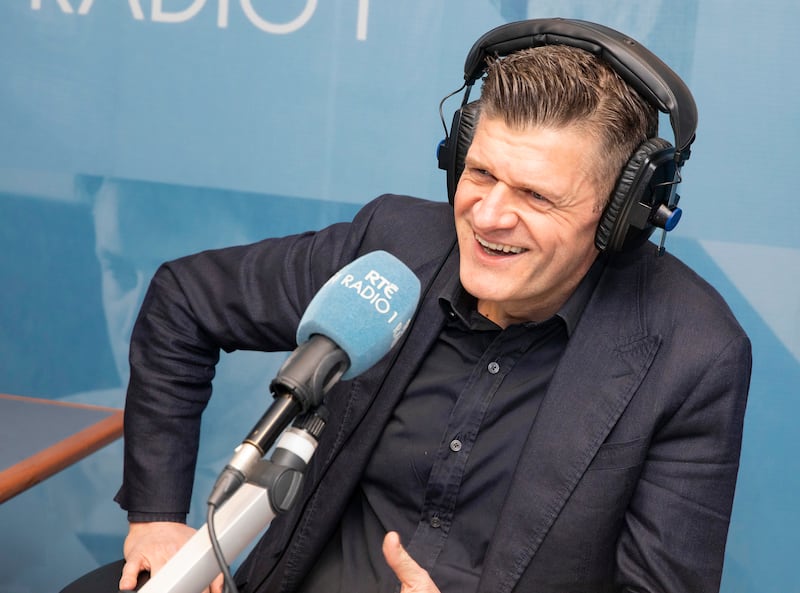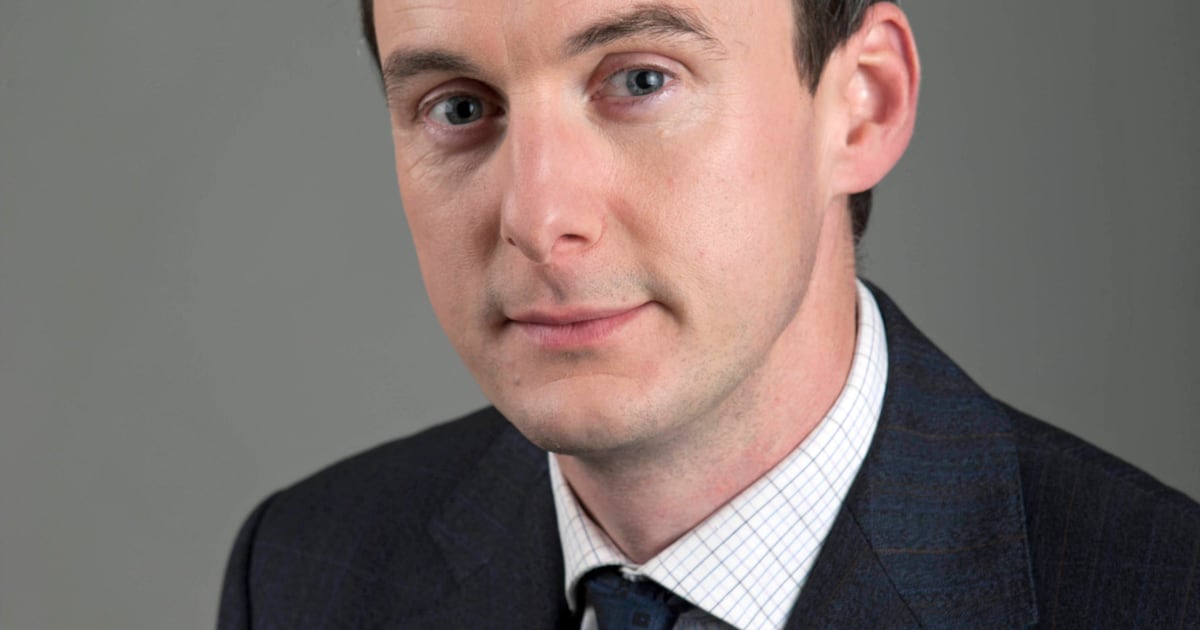Having sounded distinctly rudderless of late, Liveline (RTÉ Radio 1, weekdays) goes nuclear, perhaps in an attempt to stir things up. On Monday, Colm Ó Mongáin, its current guest host, hears from Frank, who’s concerned about the readiness of Ireland’s emergency public-warning system for sending text alerts to mobile phones in the event of a disaster.
With the system apparently untested for two years, Frank contrasts this with the preparedness demonstrated by Bás agus Beatha, a government handbook for surviving nuclear war from 1965. But as he reads through the stark publication, Ó Mongáin is more interested in broadcasting recommendations than survival tips.
“There is one line that jumps out,” the host says. “‘When you hear the national alert, keep your radio switched on and tuned into Radió Éireann all the time’.” He impishly adds: “Not many people in this neck of the woods quibbling with that particular piece of advice.” Ó Mongáin is obviously being irreverent, though the advice isn’t as clear-cut as it might seem: given a choice between listening to Liveline or braving fallout, taking your chances in the rampant radiation might seem a less onerous option than sitting through the phone-in show’s more ponderous moments.
For instance, Monday’s item about young people failing to give up bus seats to older passengers has its merry moments – one caller, Anne, describes herself swaying “like a pole dancer” while standing on a crowded bus – but quickly reverts to standard tropes about modern Ireland lacking the manners of the old days.
Later, when another caller talks about a “coloured man” giving her a look when asked to move from his seat, Ó Mongáin quickly jumps in before things get problematic. “Sounds like you’ve had plenty of experience, regardless of people’s colour,” he remarks, a faint note of alarm in his voice.
It has ever been thus on Liveline, of course. But where Joe Duffy revelled in such situations, theatrically egging on his callers, none of his putative successors has created the same rapport since his retirement, in June. As his stewardship of Radio 1 shows such as The Late Debate and his eponymous Saturday panel programme attest, Ó Mongáin is an appealing broadcaster, relaxed yet engaged. But while he chats easily – and patiently – with callers on Liveline, there’s a feeling that his talents could be better used elsewhere. (The same notion occurs when Katie Hannon, another gifted broadcaster, helms the show.)
It’s probably no coincidence that Ó Mongáin sounds most at home when talking to the political commentator Larry Donnelly and the Fine Gael county councillor Yemi Adenuga about the revelations that the Social Democrats TD Eoin Hayes once dressed in blackface: it’s the kind of in-depth discussion he regularly conducts on his other shows.
Either way, the prolonged process of selecting Duffy’s permanent replacement not only adds to a sense that Liveline is drifting but also underlines how much the show’s previously untouchable status rested on its former supremo’s inimitable presence.
That said, Ó Mongáin taps into the trusted Liveline formula of using personal stories to illuminate wider issues when he speaks to Dr Liqa Ur Rehman about increasing incidences of racism. The Pakistan-born paediatrician recounts being racially harassed while in the park with his family, and notes that many medical colleagues from the international community in Ireland are encountering greater levels of abuse.
It has reached the point where many doctors, including Rehman, are considering leaving Ireland: “If I’m stressed about my family’s safety, I find it hard to concentrate on work,” he says, with obvious regret. It’s an upsetting item, well handled by Ó Mongáin, and ominous too, given how much our health service depends on those foreign-born medical professionals now targeted by racist attacks. In the absence of an emergency public-warning system, Liveline still sounds the alarm.
 Brendan O’Connor (RTÉ Radio 1, weekends) remains the station’s most reliable source of heavyweight interviews. Picture: Kinlan Photography.
Brendan O’Connor (RTÉ Radio 1, weekends) remains the station’s most reliable source of heavyweight interviews. Picture: Kinlan Photography.
With much of Radio 1’s schedule in flux, Brendan O’Connor (RTÉ Radio 1, weekends) remains the station’s most reliable source of heavyweight interviews. Certainly, Saturday’s conversation with Leo Varadkar mixes big topics with personal experience to absorbing effect. The former taoiseach appears on the show to promote his memoir, but O’Connor dispels any prospect of a soft-focus chat with rapid-fire questions that keep his guest off-balance.
Varadkar talks about growing up as a biracial child in culturally homogenous Blanchardstown, in Dublin, and how being a closeted gay man when younger fuelled his arrogance, but his host intently prods the “reserved” ex-politician to dig deeper. Similarly, O’Connor keeps pressing his guest on his opinion that the national public-health emergency team, better known as the Nphet advisory committee, wielded too much power during the pandemic lockdown and on his admission that his government failed to deliver on housing.
Varadkar responds to his host’s questioning vigorously if not always convincingly – he calls the housing crisis a “mathematical problem” – but O’Connor’s approach helps uncover a more reflective side to the former taoiseach’s somewhat aloof public image.
O’Connor’s other guest on Saturday, the writer and broadcaster Manchán Magan, is anything but reticent, as he talks about life and impending death. “We might get a year or two, definitely a few months,” he says of the prostate cancer that is “devouring” him.
Despite the grim prognosis, however, Magan cuts a positive figure. He admits to sadness at the thought of his partner being alone, as well as being unable to keep writing books such as his latest lexicography of the Irish language, Ninety-Nine Words for Rain (and One for Sun), but “for some reason I’m not scared”.
This time O’Connor sounds more sympathetic, unsurprisingly, while eschewing maudlin shows of pity. (“It’s of no use,” Magan says of the pity of others.) Instead the host voices justifiable wonder at his guest’s manner – “If this was going on for me, I wouldn’t be sitting here as upbeat as you are” – and shows his instinctively sceptical side when asking the ever-enthusiastic Magan about his sincere belief in the spirit world: “Let’s get a bit wacky now.”
Meanwhile, Magan’s sense of wonder persists, making for an ebullient conversation, oddly life-affirming despite its ostensibly morbid nature. Bás agus beatha indeed.
Moment of the week
Kieran Cuddihy is in satisfyingly ranty form on The Hard Shoulder (Newstalk, weekdays) as he comments on texts complaining about government funding of non-governmental organisations. “Every charity in Ireland is an NGO,” he says. “Yet in some people’s minds NGOs are these things spreading this so-called liberal left-wing woke mind virus. And I hate to break it to you, but you’ve all been hypnotised by Elon Musk.”
Cuddihy says he never encountered Irish complaints about NGOs until the far-right billionaire bought Twitter, in 2022, when the social-media network started “pushing this nonsense”. Hitting his stride, the host concludes that if people think NGOs are a problem, “you’ve been hoodwinked”. Only then does he catch his breath. “I feel better having got that bee out of my bonnet – or an Asian hornet, maybe.” It’s certainly a stinging rebuke.

